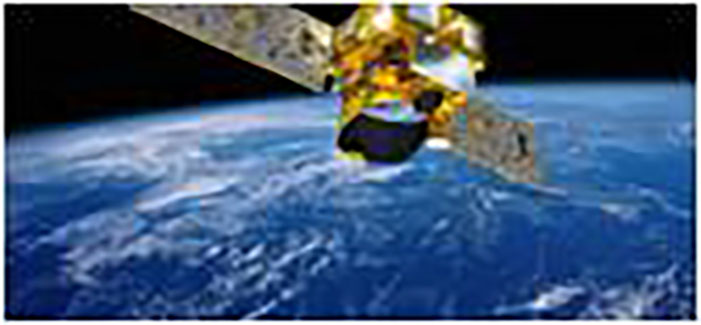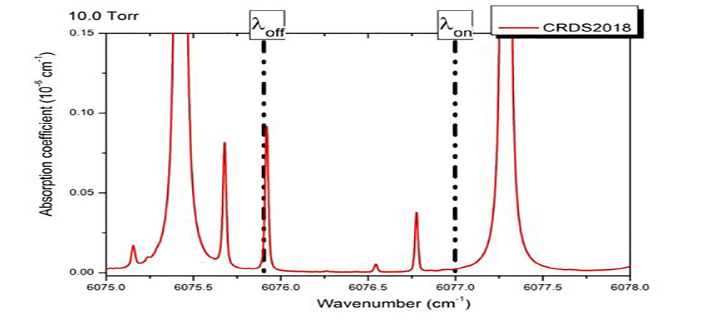- Share
- Share on Facebook
- Share on X
- Share on LinkedIn

Our team is involved in several satellite missions that aim to determine greenhouse gases (CO2 and CH4) in the atmosphere with high accuracy
The CNES MicroCarb mission (scheduled for launch in 2021), for example, will map the sources and sinks of carbon dioxide on a global scale. This mission, currently under development, will require to determine the integrated column of atmospheric carbon dioxide with an accuracy of 0.3% using the CO2 bands centered at 1.61 and 2.06 µm. For this mission our team is in charge of the detailed CRDS-assisted frequency comb spectroscopy of the 1.27 µm (7875 cm-1) O2 band (Figure 1). Indeed, the exact knowledge of the air mass is necessary to convert the total observed quantities of greenhouse gases into column-averaged mole fractions that can then be compared with in situ measurements by balloon or aircraft. The mass of air sampled is obtained from molecular oxygen whose mole fraction (20.95%) is constant throughout the atmosphere up to an altitude of about 100 km. A significant part of the uncertainty on the mole fractions found for greenhouse gases comes from the spectroscopy of molecular oxygen. The oxygen column is obtained exclusively with the a1Δg-X3Σ-g band of molecular oxygen around 1.27 µm and/or with the much more intense A band centered at 0.76 µm.

The Franco-German MERLIN mission, scheduled for launch in 2024, aims to measure with an uncertainty of less than 0.3% the integrated column of atmospheric methane. For this, a lidar (light detection and ranging) instrument IPDA (Integrated Path Differential Absorption) will emit at two wavelengths, one absorbed, λON, by methane and the other not, λOFF, around the R(6) multiplet of methane around 1.6 µm. This instrument will allow us to measure the spatial and temporal gradients of this molecule in order to constrain the surface fluxes. We performed spectroscopy of water vapor, which is the main interferent of methane in this region of the spectrum, using the frequency comb assisted CRDS technique (Figure 2).

Actors
Alain CAMPARGUE
Samir KASSI
Didier MONDELAIN
- Share
- Share on Facebook
- Share on X
- Share on LinkedIn